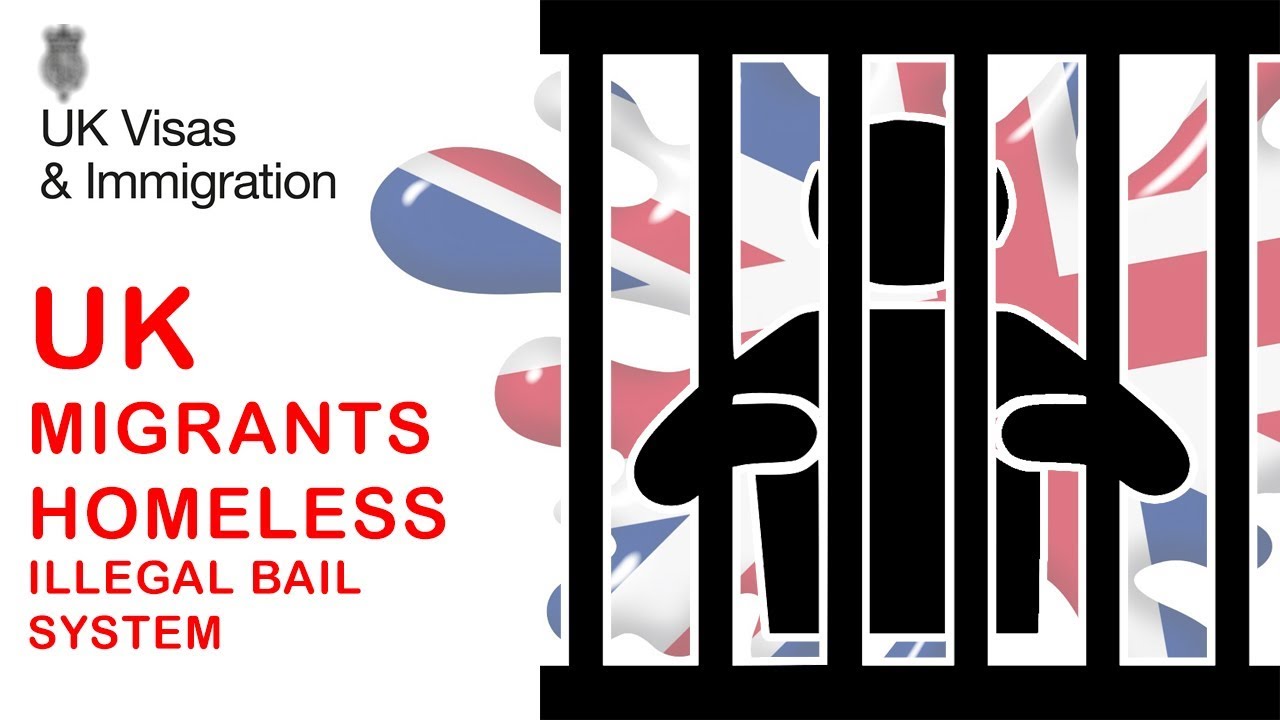
UK Migrants Left Homeless after Illegal Bail System
Homeless migrants are being kept in detention centres indefinitely due to the fact the home office is not finding them an area to live after release. The department’s refusal or lack of ability to provide lodging under a brand new immigration bail system introduced in 2018 means that potentially hundreds of migrants in detention have nowhere else to head and are being both held unnecessarily or put out on the road, according to the Charity Bail for Immigration (B I D).
B I D says that “many detainees are being indefinitely detained for no different purpose than their loss of appropriate accommodation. Others had been sent with the aid of the [Home Office] to the streets, doubtlessly into destruction”.
A response to a freedom of Information request with the aid of the charity, lodging was provided in only 24 instances within the first 5 months of 2018 as compared to 2,800 final 12 months.
The Immigration Act 2016 made radical changes to the system of immigration bail, which came into force in January 2018. They include repealing section 4(1)(c) of the Immigration and Asylum Act 1999, which allowed homeless migrants to apply for government accommodation from within detention if they had nowhere else to go after release.
Under the new regime, there are in theory various routes to securing accommodation depending on the immigration status of the homeless detainee. But BID says that none of the routes work in practice:
B I D’s casework since 15 January 2018 has shown that the end result is the same: the Home Office is not supplying immigration detainees with accommodation post release. Without s4(1), homeless detainees are either bailed onto the streets or ‘accommodated’ in detention because they do not have an address.
The charity’s briefing lays out a series of Kafkaesque scenarios:
Immigrants who are not asylum seekers can in theory get accommodation under paragraph 9, schedule 10 of the Immigration Act 2016, but there is no actual process for them to apply for it. Failed asylum seekers can apply for accommodation under section 4(2) of the Immigration and Asylum Act 1999 if they have proof that they are due for release within 14 days, but detainees are never given a date for release.
Other asylum seekers can apply for accommodation under section 95 of the 1999 Act if they are “destitute”, but the Home Office says that if they are still detained, they cannot be destitute.
These applicants are forced to go onto the streets so as to satisfy the destitution test and only then they can apply for accommodation.
The result, according to figures released under the Freedom of Information Act, is that only a handful of detainees have been given accommodation in the first five months of 2018. That compares to several thousand who were accommodated in 2017, under the section 4(1) system.
Some migrants are having to stay locked up when they would otherwise be released by an immigration tribunal judge. The First-tier Tribunal is “unlikely to release someone to the streets unless they are assured that the applicant has accommodation to be released to”, BID says, so “applications for FTT bail are being consistently refused due to lack of accommodation”.
In other cases, the lack of accommodation simply means that the detainee is released with nowhere to go:
- We have had several cases since 15 January 2018 where the Home Office has opposed client’s application for Tribunal bail, citing lack of accommodation as a reason for opposing bail, and bail has been refused.
- The Home Office has then released these clients to the streets in the days following the hearing. B I D is asking for the reinstatement of the previous section 4(1) accommodation system.
Meanwhile, it is advised that asylum seekers having issues with accommodation to contact the charity migrant assistance on 0808 8000 631 for assistance with their application.


Leave a Reply